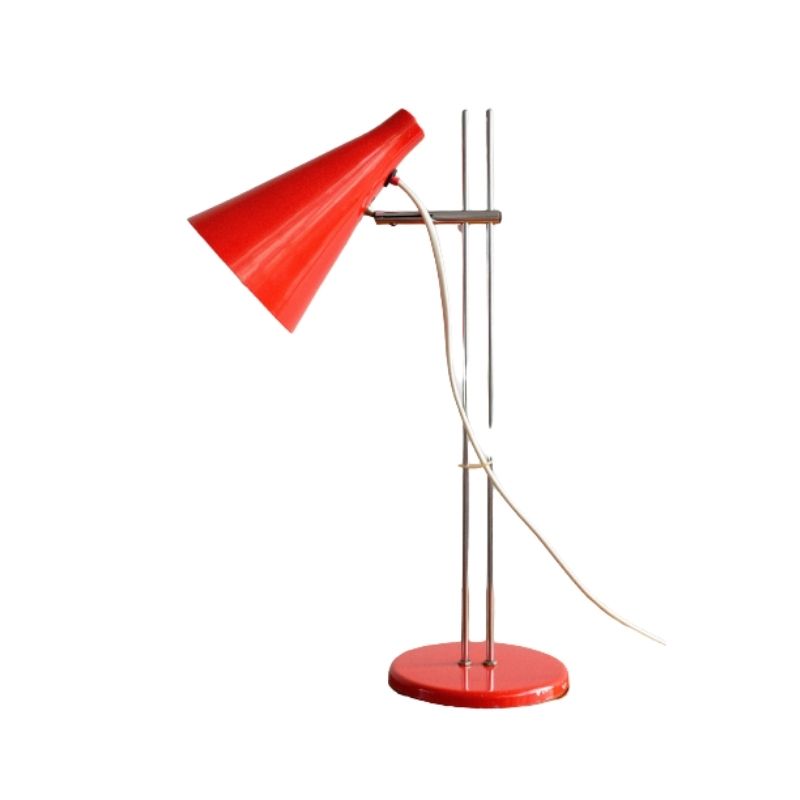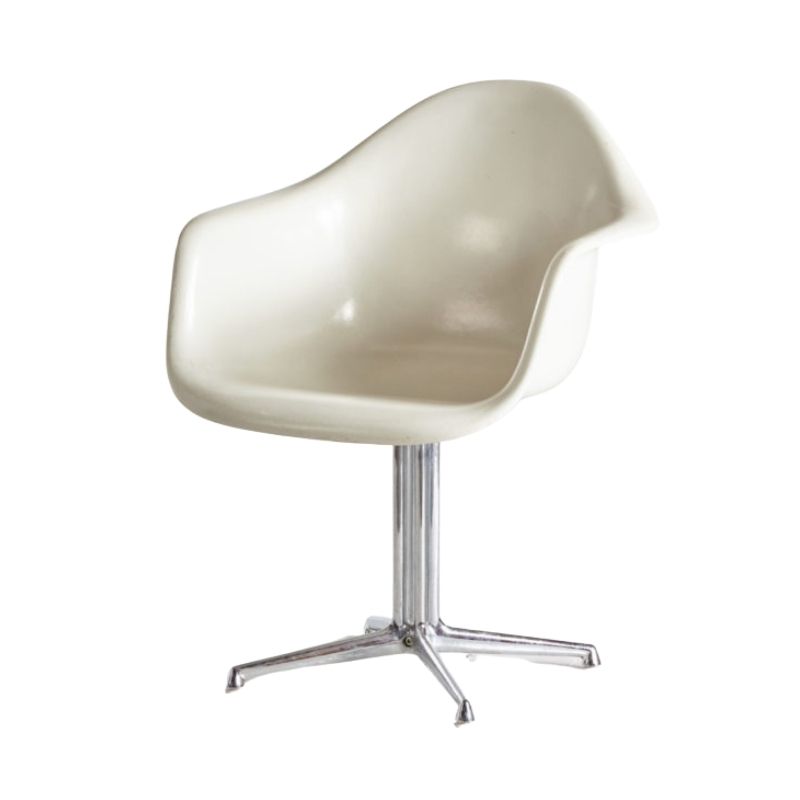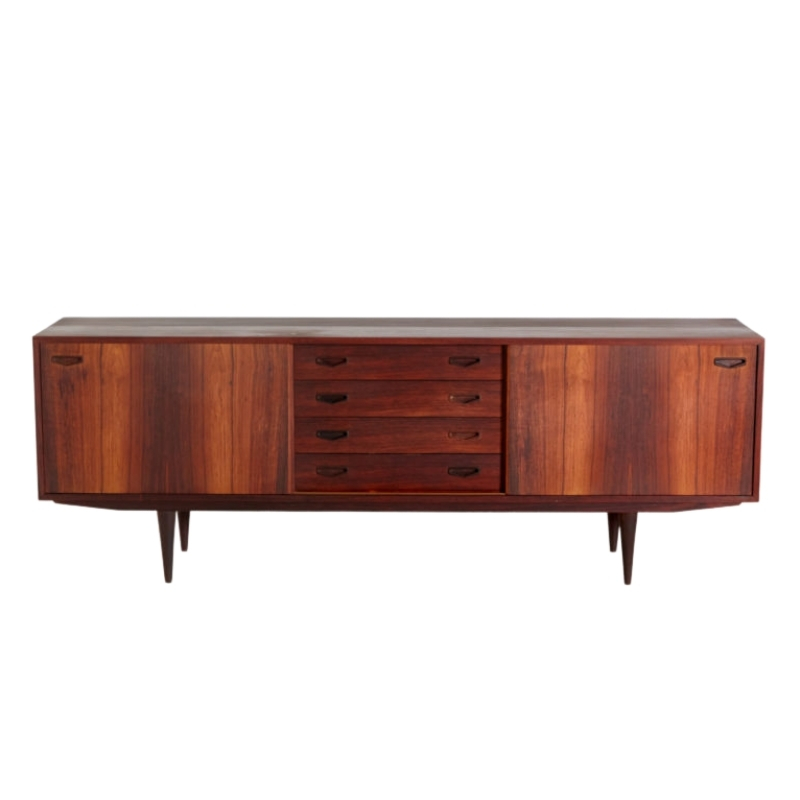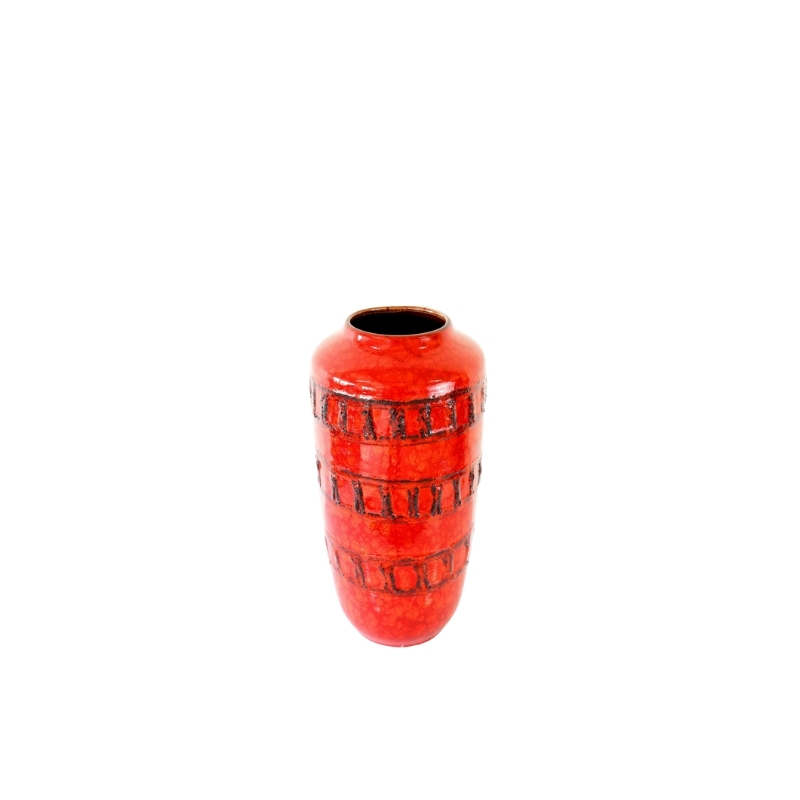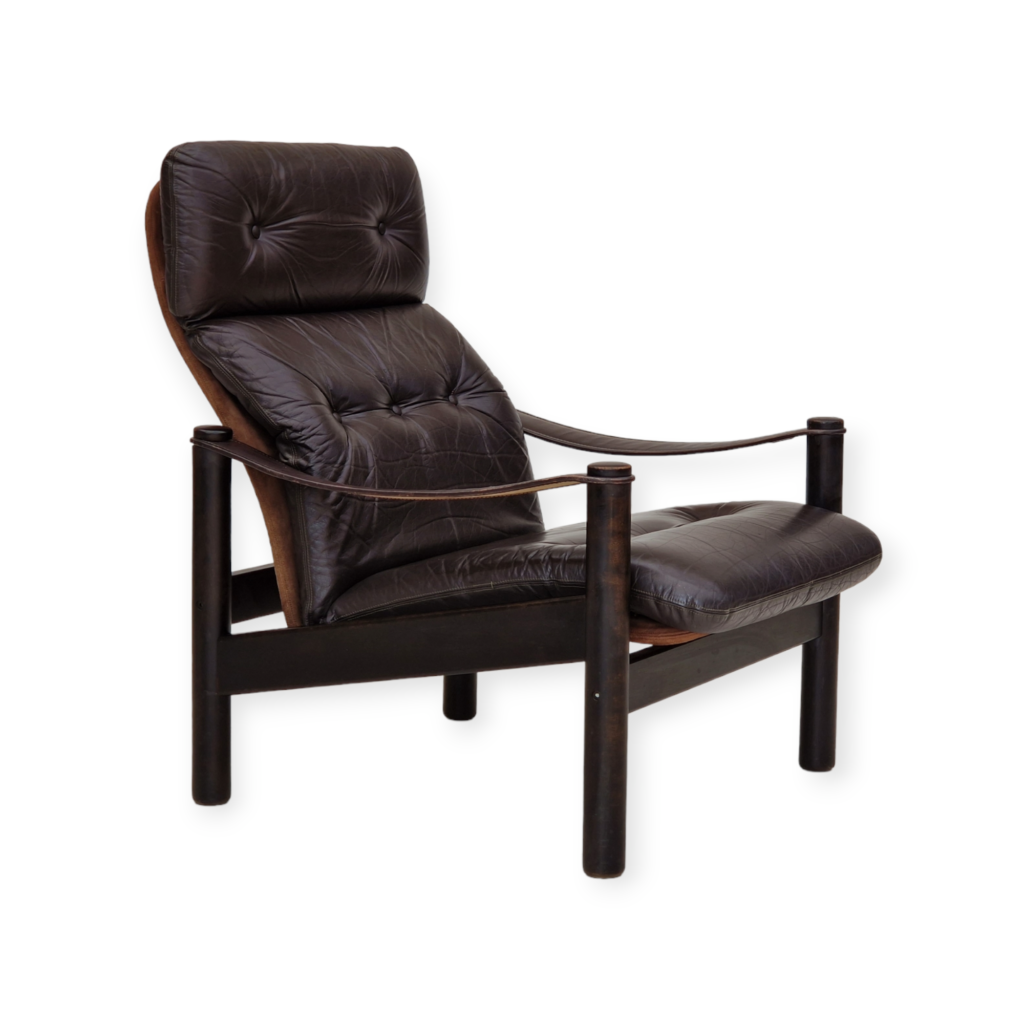Hi folks,
I restore some Kai Kristiansen chairs. The chair frame was in pretty rough shape. There are deep cracks in the wood. Seems the chairs were used outside for a longer period. After grinding I thought to use teak oil, but due to the cracks and some dark spots here and there my new idea was to use gel walnut stain and then wax to cover the rough surface. But I think when I stain them, the stain might go deeper inside the cracks and make them even more visible. What would you guys recommend? Thanks a lot in advance!
I wouldn't recommend putting stain on them. Apply a little alcohol or white spirits to see what oil will look like. Treatment(s) with oxalic acid will often reduce or eliminate graying or staining caused by outdoor exposure. Teak often has darker streaks in the grain naturally. Looks to me like you've done a very good job already and, from what I see in your photos, the chair appears almost ready for oil!
Well, if you insist on having your chairs look more like walnut, then I'd recommend using an aniline dye stain rather than a pigmented stain and to err on the diluted side. You can always go darker with successive applications, but not the other way 'round. And remember that oil on top of the dye stain will darken the wood even further. Experimenting on inconspicuous areas is highly recommended, as always.
The chairs in the last photo appear to have had a lot of work done to them.
FWIW, I've always considered staining teak (or any other exotic, tropical hardwood) to be a shame unless it's done to repair damage or tone an errant bit of sapwood. Let your vintage pieces tell their stories!
Very good point with the letting the vintage pieces tell their stories. I might follow your advice and skip the walnut stain and use just oil. The idea was to cover some darker aging spots on the wooden frame, but I never used stain in the past and I fear that might look not stained, but kind of dirty if applied not appropriate. So, both ways have a risk for me, but since I used oil many times in the past that way seems to me more predictable.
Good call, Brow. I think you are in Europe and I don't know how easily available oxalic acid is there, but it is often effective for diminishing or eliminating weathering stains (which I consider to be damage in this case) without changing the natural color of wood. It's relatively safe, easy to use, and inexpensive, too. Worth a try if those dark marks bother you.
Good chairs, BTW. Bon chance, stay healthy, and keep us posted with results!
Please alow me one tiny remark. I know this is not the central problem here - but the chairs are not Kai Kristiansen. They were made by Korup stolefabrik and Kristiansen never designed for Korup. Common misattribution.
"People buy a chair, and they don't really care who designed it." (Arne Jacobsen)
@herringbone. I remember you posted on this Kai Kristiansen missattribution a while back.You were waiting for a response from the man himself. Did you ever hear back?
Thanks for reminding us about this information.
Knowledge shared is Knowledge gained
Thank you for your advice tktoo2, I will gladly check the oxalic acid. I can order it from amazon. Will report my results later!
Thank you also for clarifying of the designer Herringbone. That is a big surprise for me. I was very sure the chairs are from KK. Do you maybe know from which wood type they are made? (I am not yet at the point that I can recognise the wood myself. I suppose it's teak but not sure.)
They are teak. I don’t see any dark spots you want to cover in your photos. And I think you would end up with a dirty look by trying to cover dark spots with dark stain as a general principle. And since you want the dark look of those other chairs I don’t see why you want the darkness of the wood removed. You probably should not use oxalic acid because it will knock out some level of darkness in the wood. You may want to consider a stain along the plywood edge. The factory probably put a stain there because it is going to be unpleasantly light when you oil the teak. But generally I think you are ready for oil. Some oils have more sheen than others. You might find that something like a teak oil first, which is very low sheen, followed by a second coat of a higher sheen oil gives you the look of those other chairs.
@Browkin I can't tell for sure but Korup was definitely riding the teak wave. Most of their chairs were done in teak, to a much lesser extent they used rosewood and I've seen oak, too.
@lexi No, the company never got back to me. I was planning a trip to Denmark in may and my plan was to ask Kai for an interview. But, alas.
Yet I'm still trying. But the matter is complicated. Korup stolefabrik was run by snedkermester Tage Simonsen. His son is still around. He should know who designed for Korup, but he is not easy to contact.
The only designer who, to my knowledge, demonstrably did some designs for Korup is Henry Kjaernulf (most people think, his first name was Henning, but it wasn't). I have found his family already, but because of corona there's not much I can do right now.
"People buy a chair, and they don't really care who designed it." (Arne Jacobsen)
If you need any help, please contact us at – info@designaddict.com







